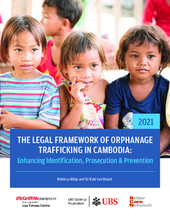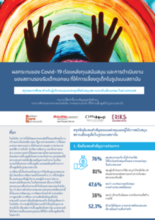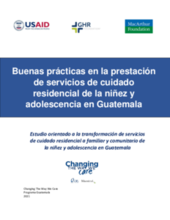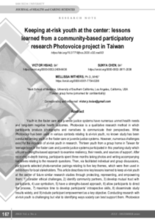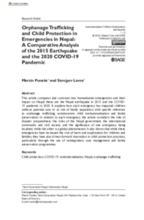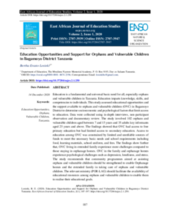Displaying 151 - 160 of 1463
Orphanage trafficking occurs at the nexus of criminal law (human trafficking offences) and child protection regulation. This report examines the intersection of these two legal systems for the purpose of developing a strategy to identify and prosecute orphanage trafficking.
การศึกษานี้เป็นงานวิจัยเชิงคุณภาพขนาดเล็กที่เกี่ยวข้องกับการสัมภาษณ์แบบกึ่งโครงสร้าง 21 ครั้งกับผู้ก่อตั้ง ผู้ให้ทุน และผู้อำนวยการ RCI ใน 7 ประเทศ ได้รับการออกแบบมาเพื่อให้เข้าใจผลกระทบของโควิด-19 ได้ดีขึ้นในการดำเนินงานของสถาบันการดูแลที่อยู่อาศัย ซึ่งรวมถึงการจัดหาเงินทุน การจัดหาบุคลากร อาสาสมัคร การดูแลเด็ก การศึกษา ความสัมพันธ์ในครอบครัว และการรวมตัวกลับคืนสู่สังคม
Estudio orientado a la transformación de servicios de cuidado residencial a familiar y comunitario de la niñez y adolescencia en Guatemala.
This study aimed to unravel the different issues and challenges that hinder the effective rehabilitation of children in child care institutions in India.
This article reports on a systematic scoping review which investigated research publications on participation in making life-impacting decisions by young people.
Thirteen youth from a group home in Taiwan for teenage boys in the foster care and juvenile justice systems participated in this yearlong study which utilized a strengths-based approach to examine resiliency, their needs, and sources of support. This article describes nine key lessons learned to keep at-risk youth at the center of future similar research studies through protecting, representing, and empowering them.
This article compares and contrasts two humanitarian emergencies and their impact on Nepal: these are the Nepal earthquake in 2015 and the COVID-19 pandemic in 2020.
This article draws on original empirical data to explore the narratives of young Nepali adults who lived in Kathmandu orphanages as children. Through these narratives, the article explores the diverse complexities of the residents' experiences of volunteer tourism and NGO ‘rescue’, and the shortcomings of recent ‘neoabolitionist’ frameworks.
This study assessed educational opportunities and the support available to orphans and vulnerable children (OVC) in Bagamoyo District to determine socioeconomic and psychological factors that limit access to education.
This chapter will record the views of a small sample of elders (now in their 70s, 80s and 90s), who grew up in Barnardo’s facilities in the UK, on being separated from their siblings and how they re-connected with their brothers and sisters in old age.

